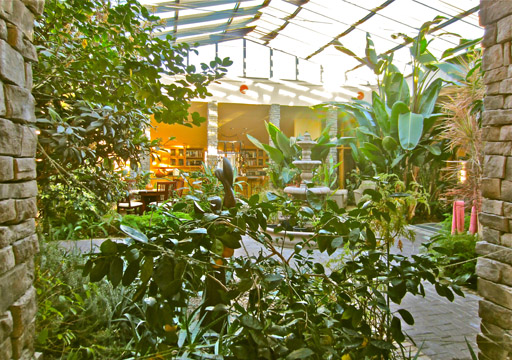
Click MENU Icon to Close

Click MENU Icon to Close
The Future of Smart, Sustainable Housing: Virginia Tech's FutureHaus Design Platform will be Featured at the 2018 International Solar Decathlon in Dubai Fine tuning prefabricated construction, an innovative building system pioneered at Virginia Tech dubbed FutureHaus features cartridge style plug and play modular components. “Virginia Tech’s FutureHAUS research isn’t just some cool, futuristic concept,” commented project leader Joseph Wheeler, professor of architecture and co-director of the Center for Design Research. “We’re proving that it’s a practical, easy-to-implement model for efficient design and building that could revolutionize the construction industry and make housing more accessible to people of all walks of life, everywhere.” The prototype FutureHAUS bedroom has a multimedia canopy bed screen that can project everything from TV and Internet to ambient lighting and user-responsive sleep scenes. Image: Virginia Tech |
|
Designing a Coastal Future in the Face of Sea Level Rise Though it may be small, the Hampton University Architecture Department shows big promise in the resiliency arena. According to Associate Professor, Mason Andrews, HU is now offering a certification in Sea Level Rise Adaptation with courses starting in January 2017. She also notes that HU was recently selected as “one of six architecture schools to head regional efforts” for the AIA Foundation’s National Resilience Initiative. Even more impressive is the $120 million HUD award made to the Commonwealth, largely earmarked for a design strategy hatched by HU architecture students collaborating with Mujde Erten-Unal 's engineering counterparts from Old Dominion University. Andrews has another ambitious plan in mind: Amphibious Architecture. Read Post. |
|
Place Making, Habitat Preservation & Sustainable Design on the Lynnhaven River With Accreditation & Acclaim, the Chesapeake Bay Foundation Establishes a High Profile Presence in Tidewater While headquartered in Annapolis, Maryland, the Chesapeake Bay Foundation has supported education and advocacy activities near the mouth of its namesake for over 30 years. When development plans for a contentiously disputed 100+ acre track of coveted coastal property along the Lynnhaven River went belly up during the the real estate bubble, the organization got involved with the City of Virginia Beach and other groups to preserve the property. Developed on a 10 acre parcel of the larger Pleasure House Point property is the non-profit's second pioneering state of the art structure. The Brock Environmental Center not only welcomes visitors to the unique site, it also inspires a nature oriented or biophilic lifestyle. Read More. |
|

Want a room with a view? Check out this "Out of the Box" Sustainable Home for Sale in Poquoson. The community hosts passive and active solar, geothermal systems, indoor gardens, rainwater collection, an organic garden and orchard. Read about the Garden Atrium eco community in this post from 2011. For sale information and photo tour, go the the Garden Atrium site. |
|
Building Carbon StoresThe building industry alone is responsible for almost half of CO2 emissions. By creating structures with carbon neutral or negative materials and designing for energy neutral or positive operation, it may be possible to build our way out of the carbon conundrum. The Virginia Beach home pictured is constructed from carbon sequestering hempcrete. Not only does hemp photosynthesize and remove carbon as it grows, hempcrete continues to remove carbon from the atmosphere during its structural life. Read more about carbon neutral materials. |
|
Nature at WorkRe-establishing natural habitat in urban environments enhances biodiversity and increases resilience. Read about the innovative ways ecological infrastructure is being incorporated into the built environment like this new seawall in Seattle that will restore critical salmon habitat. Living shorelines, floating wetlands, phytoremediation, green roofs as well as office and rooftop urban agriculture are all discussed. Go to article. |
|
Virginia Participates in Pioneering Planning Partnerships (Biophilic and Resilient Cites) Ground-breaking planning programs with Virginia ties have been launched. Two have an urban emphasis covering a host of cities spanning the globe, while another's focus is close to home and covers new territory: the ocean. The common thread behind all the initiatives is that through collaboration, creative approaches can be developed and shared so mutual goals can be achieved more efficiently. Read More. |
|
Adapting to Rising Seas with Aquatecture Rather than retreating from inundation prone low elevations, the solution, in some situations, may be to look for ways to make accommodations to the built environment. Amphibious or floating architecture coined as aquatecture is one potential coping strategy. |
|
Extreme Green Design Edging into the MainstreamThe Pacific Northwest is not the only green building corridor in the Nation. Within the Mid Atlantic and particularly the Chesapeake Bay region, the green construction movement is exploding. Pictured is a LEED Platinum Virginia Beach home featuring a vegetated roof, solar power with battery backup, rainwater harvesting and treatment system for potable uses. Read more about this home designed by Watershed Architects and more emerging developments here. |
|
The meadow movement is gaining ground and putting down roots. From urban rooftops to suburban front yards and rural farmscapes, meadows are beginning to transform the managed environment. Although the movement has momentum, in many communities, progress is still in an infancy stage. Since these sustainable and beautiful landscapes provide important ecological services including wildlife habitat, the benefits extend well beyond aesthetic goals. Read more. |
|
Virginia Solar Vintner Tour Vintners, who rely on sunshine to bring fruit to the vine, are also exploiting its power to energize their indoor operations. Explore the vineyards that are embracing solar power here. |
Check the Archive for Previous Posts
All Rights Reserved: Disclaimer